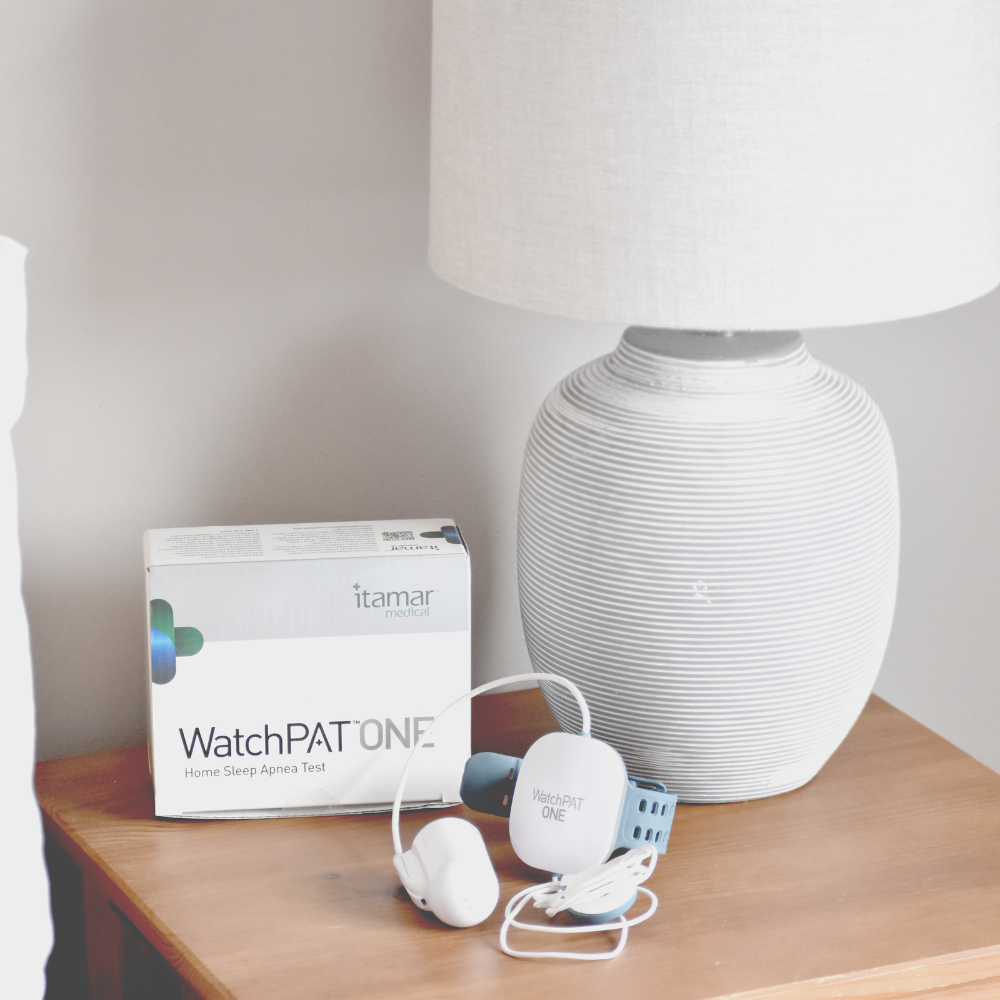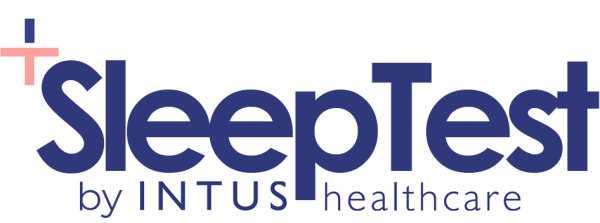Fact Checked
Intus Healthcare’s writers, customer service team, and sleep experts review and ensure this information is accurate.
Last updated on March 31st, 2025 at 10:51 am
Anyone who has experienced Obstructive Sleep Apnoea (OSA) knows of the common debilitating effects.
These include excessive daytime fatigue, chronic snoring, sudden waking with shortness of breath, and a lower immune system. That is why it is essential to obtain an accurate confirmation to initiate the correct treatment.
Table of Contents
Sleep Apnoea and heart disease are two medical conditions that can be interconnected and significantly impact an individual’s health. Cardiovascular disease is arguably one of the most severe conditions linked with OSA.
Can Sleep Apnoea cause heart problems?
Yes, Sleep Apnoea can cause heart problems as the condition stop oxygen from reaching the brain. Similarly, those with heart disease are more likely to develop Sleep Apnoea; research suggests that around 80% of people with cardiovascular disease may suffer from Sleep Apnoea (1).
How does Sleep Apnoea cause heart disease?
We first need to examine the mechanics of OSA to understand the link with cardiovascular disorders. The involuntary narrowing of the airways causes your body to become deprived of oxygen. This is why many sufferers snore loudly and wake up gasping for breath to regain oxygen. Let’s look at how OSA can lead to problems with your heart in greater detail.
Blood Pressure: While OSA is often associated with high blood pressure (hypertension), it can also occasionally be associated with low blood pressure (hypotension) in some individuals.
Due to the narrowing of your airways, your body cannot receive the required amount of oxygen, and your overall blood pressure will drop. The repeated drops in oxygen can lead to elevated blood pressure as the body produces more adrenaline.
Although your autonomous nervous system will eventually induce arousal, we must remember that when our muscles and heart are temporarily starved of oxygen, they can suffer damage.
Untreated OSA will damage the smooth muscle that lines your heart, increasing your chances of developing cardiovascular disease. We should also note that systemic blood pressure issues can be problematic for those who might already be suffering from other conditions, such as diabetes, so addressing OSA is critical.
Hypoxia (Low Oxygen Levels): Sleep Apnoea can cause intermittent drops in blood oxygen levels due to breathing interruptions. This puts extra stress on the heart, as it needs to work harder to pump oxygen-rich blood throughout the body. Over time, this increased workload can contribute to developing or exacerbating heart problems. It is well known that carbon dioxide will starve your muscles of the essential nutrients required for them to function correctly. This likewise has a debilitating impact on your heart, placing it under tremendous strain throughout the day and possibly leading to significant issues.
Irregular Heartbeats (Arrhythmias): Sleep Apnoea can disrupt normal heart rate variability, which refers to the variation in time intervals between successive heartbeats. Reduced heart rate variability is associated with an increased risk of cardiovascular events.
Sleep Apnoea can contribute to developing irregular heart rhythms, known as arrhythmias. These abnormal heart rhythms can increase the risk of stroke, heart attack, and other cardiovascular complications.
The main issue here is that such a sudden increase in carbon dioxide will place a great deal of strain on your arteries and the heart itself. The associated stress can negatively impact your entire circulatory system if this scenario is repeated frequently.
Arousal Responses: In response to apnoea events, individuals with OSA often experience “microarousals,” brief awakenings that are not usually remembered. These awakenings can be associated with surges in heart rate. These repeated awakenings and related changes in heart rate can lead to fragmented and disrupted sleep patterns.
Atherosclerosis: Some research suggests that OSA may promote the development of atherosclerosis, a condition where plaque builds up in the arteries, narrowing them and increasing the risk of heart attacks and strokes.
Impaired Recovery: Sleep Apnoea can disrupt the restorative quality of sleep, leading to chronic sleep deprivation. Poor sleep quality and insufficient sleep can contribute to overall cardiovascular health issues.
Obesity: Obesity is a common risk factor for Sleep Apnoea and heart disease. Excess body weight, especially around the neck, can increase the likelihood of airway obstruction during sleep.
Inflammation markers: Issues with the heart have been associated with chemicals in the body commonly known as “inflammation markers”, such as C-reactive protein (CRP) and interleukin-6 (IL-6). These tend to be present when we are under stress (both physical and mental) or if an illness is present. Inflammation is the body’s natural response to injury or infection, but chronic, low-level inflammation can contribute to various health problems, including cardiovascular disease, diabetes, and metabolic disorders.
Inflammatory markers such as cortisol are associated with weight gain, as they increase the chances of becoming ill and heart-related conditions. The main issue is that these markers tend to go unnoticed only once significant damage has already been done. It is a good rule of thumb to remember that the presence of OSA likely signifies that the inflammation markers throughout your body are higher than average, another reason to seek professional advice.
How to manage symptoms
Your lifestyle and dietary choices can increase your Sleep Apnoea symptoms and exacerbate heart issues. A poor diet and lack of exercise have been linked to heart problems, strokes and even premature death. Although there is no denying the critical importance of obtaining professional confirmation from a sleep specialist, we should also highlight that you must take a more proactive approach to your lifestyle.
Some recommendations include the following:
- Avoid stimulants such as caffeine, particularly before going to sleep.
- Reduce or eliminate alcohol consumption.
- Exercise regularly
- Reduce the amount of saturated fats in your diet and eat more foods that help you sleep.
- Create a bedtime routine; read more about practising good sleep hygiene.
- Monitor your blood pressure regularly.
Related article: What is sleep hygiene and why is it important?
Although these recommendations can help to reduce symptoms, they do not replace treatment for your condition. There are various ways to treat your OSA, including using a CPAP machine, an oral appliance or positional therapy. Finding the right treatment for your condition is essential to help your overall health.
When to test for Sleep Apnoea
Do you have symptoms of Sleep Apnoea? Here are a few common warning signs to look out for:
- Daytime fatigue
- Chronic snoring
- Choking in sleep
- Morning headaches
- Difficulty concentrating
- Forgetfulness
The best way to determine whether Obstructive Sleep Apnoea is present is to take an In-Home Sleep Test. This examination will require only a single night to complete, and once the results have been obtained, they will be sent to one of our sleep specialists. Results are returned within two working days.

Home Sleep Apnoea Test
The test monitors your heart rate, snoring intensity, blood oxygen levels, body positioning, and more, providing accuracy comparable to testing used in sleep clinics for in-depth sleep analysis.
The simple-to-use test takes just one night to complete, and results are returned within two working days after completion.
Our experienced NHS-qualified sleep professionals independently analyse all studies, providing follow-up advice and support.
Assuming that OSA is confirmed, recommended treatment will be provided. One of the most common is to use what is known as a continuous positive airway pressure machine. Otherwise known as CPAP therapy, it provides a constant flow of pressurised air to prevent breathing pauses so the body gains sufficient oxygen.
This helps you to achieve restorative sleep and, over time, reduces the risk of heart disease and many of the serious situations mentioned earlier in this article.
About Our Editorial Team
Danni is a degree-educated content writer passionate about helping those with Sleep Apnoea sleep better; she works closely with our clinical and customer care teams to ensure that each article is thoroughly researched and accurate.
Her writing aims to inform, support, and advise readers about Sleep Apnoea, helping to raise awareness and promote effective treatment options.
She has written many health-focused articles, reaching hundreds of readers annually, to help people sleep better and live healthier lives.
Lateisha King is an experienced Sleep Clinician with advanced training in polysomnography and respiratory health.
With over six years of experience, including at the prestigious Guy’s and St Thomas’ NHS Foundation Trust Hospital, she has conducted and reviewed more than 500 diagnostic sleep studies.
Her expertise in sleep science ensures that all articles align with the latest data and treatment protocols, providing readers with trustworthy and practical advice to improve their sleep health and overall well-being.
References
- American Heart Association. 2021. Obstructive Sleep Apnea and Cardiovascular Disease: A Scientific Statement From the American Heart Association. Available at: https://www.ahajournals.org/doi/10.1161/CIR.0000000000000988. Accessed: 11.10.2024.
Published: March 16, 2020





